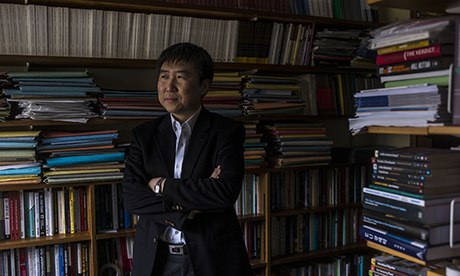Westminster's arrogance has played straight into the SNP's hands: next year's Scottish referendum could deliver the shock of the century
No nation seeks independence to get rich. It seeks independence to get free. The Scottish leader, Alex Salmond, today published a 670-page account of the political economy of an independent Scotland prior to next year's referendum. Little of it really matters. Some 30 countries have separated from dominant neighbours in the last half-century, and few stopped to count the cost. They left details of flags, borders, taxes and currencies to their negotiators. They simply wanted to govern themselves as they saw fit. That was enough.
That Scotland should come even near the brink of secession after three centuries of union with England is historically astounding. A mere 50 years ago, it was inconceivable. The reason is specific. There seems no limit to the insensitivity of Westminster's political class to the aspirations of the subordinate tribes of the British Isles. Edmund Burke remarked that London ruled even its American colonies more considerately than it did Ireland. In Scotland's case, from the poll tax and delayed devolution to the contempt for Edinburgh of London's "tartan mafia", every move has played into the nationalists' hands.
Supporters of the old British empire assumed it would last for ever. They were wrong. It disappeared because the mood of the age was against it, abetted by inept colonial administrators. Only in the white commonwealth was retreat dusted with some dignity. Meanwhile Britain's earlier empire, that of the English over the so-called Celtic half of the British Isles, has also been crumbling. Most of Ireland is gone. Salmond's white paper is a blueprint for dismantling the rest.
The white paper recycles a familiar agenda, largely included in last year's document on an independent economy. It is a confusing mix of real constitutionalism and a rag-bag of old SNP policies tossed in to give independence voter appeal. The latter tarnishes the former.
The constitution proposals are clearly a negotiating hand. We learn that the Queen can remain monarch, borders can remain open, citizenship can be shared and national debts divided. If the Scots want Faslane's nuclear submarines to go, go they must. Or perhaps Faslane could become Scotland's Guantánamo Bay.
Salmond has more trouble over his twin economic pillars, of European Union membership and the retention of sterling. He and his deputy, Nicola Sturgeon, must know that their economic model is heavy on optimism, if not fantasy. It portrays a Scotland surging forward on the cutting edge of capitalist innovation. Tax breaks galore would do for Scotland what they have done, up to a point, for Ireland. Scottish Widows would ride down silicon glen.
The reality is that Britain has long clamped the "golden handcuffs" of welfare dependency on the Scots, subsidising them annually by some £1,000 a head more than the English. The Institute for Fiscal Studies, admittedly on a worst-case base, reckons Scotland will need an 9% rise in income tax to compensate for losing Britain's subvention. Salmond retorts that the Scots would be £600 a head better off.
Whatever the truth of that, Salmond was unwise to distort the vexed debate by promising crude budgetary give-aways, such as childcare grants, tax cuts, social housing subsidies, windfarm hand-outs and the traditional splurge that tends to accompany the first stage of fiscal devolution. Nor does he allow himself the transitional leeway of a separate currency, with scope for depreciation. He wants to stay linked to the pound. He wants to share the national debt, pool financial sovereignty and reach a deal on pension and other inherited liabilities.
This is a recipe for Greek-style disaster. Scotland might enjoy the spurt of investment and growth that tends to greet new states, as in Slovakia or partly autonomous Catalonia. But the most likely sequence is brief euphoria followed by budgetary crisis, retrenchment and austerity. The emergence into the sunnier uplands of small-is-beautiful independence would be slow and painful. Salmond himself would not long survive such turmoil.
With nationalism realised, new forces to left and right would appear. Slashed payrolls and fewer benefits would see disaffection and emigration. Tourists would depart a Highlands landscape blighted by Salmond's turbine industrialisation. Optimism would no longer be an option. The road from Edinburgh to Denmark remains plausible, but it would be long and rocky.
Yet all this is Scotland's business, and is beside the question of how to give political shape to a fast-emerging national identity. Britain should know all about secession. It championed Ulster's separation from Ireland. It went to war to allow Kosovo to secede from Serbia. It sponsored the breakup of Yugoslavia, Iraq and now Afghanistan. The only empire London still supports appears to be its own ragged island confederacy.
If any generalisation is relevant to the Scottish referendum, it is that nation states worldwide are losing sovereignty upwards and downwards. States must pay obeisance to supranational treaties – in Britain's case to the EU – while their domestic control is eroded by ever more assertive sub-national groups. Wise countries such as Spain concede autonomy to the Basques and Catalans in response. There are many models of confederacy from which to choose, from Belgium and Italy to the European Union and the Commonwealth.
England's political tradition rejects such pluralism, and has paid the price. An empire that reached across oceans now struggles to reach across the Irish Sea, Hadrian's Wall and Offa's Dyke. Most of Ireland broke away in 1922, due to Westminster's mishandling. Today the English would be well-advised to stop lecturing the Scots and silence the claque of Scots expatriate scaremongers clearly appalled at becoming foreigners in their adopted land. Humility all round is urgently needed.
Polls suggest that the Scots may not go the whole hog to independence – but they may still deliver London the shock of the century. The truth is that there is no full national independence these days. There are layers of sovereignty, tiers of autonomy, democratic pluralism. Most Scots clearly seek greater detachment within, if not from, the UK.
Modern Edinburgh already feels more like Dublin than London. The coalition must seriously consider offering a new Anglo-Scottish deal, somewhere between independence and the present devolution. Salmond has put on the agenda a new dispensation between London and the "national" capitals of the UK, Northern Irish and Welsh as well as Scottish. Only the arrogance of London's political community finds such a prospect intolerable. That arrogance lost one British empire. It may yet lose another.





-8edited.jpg)






